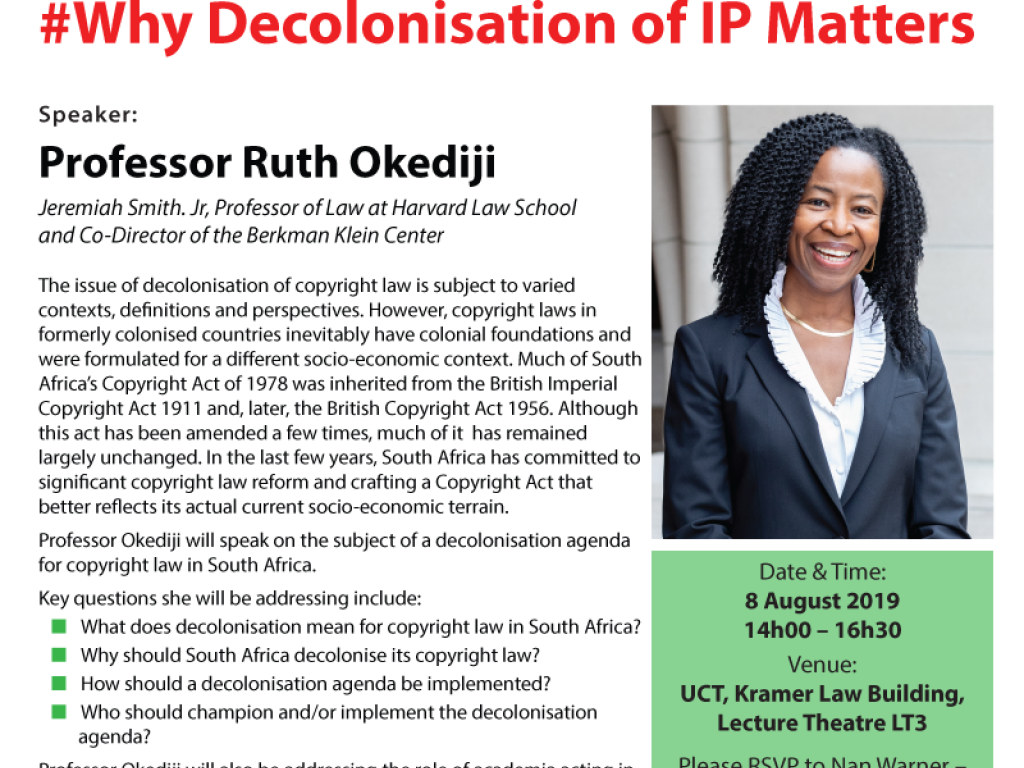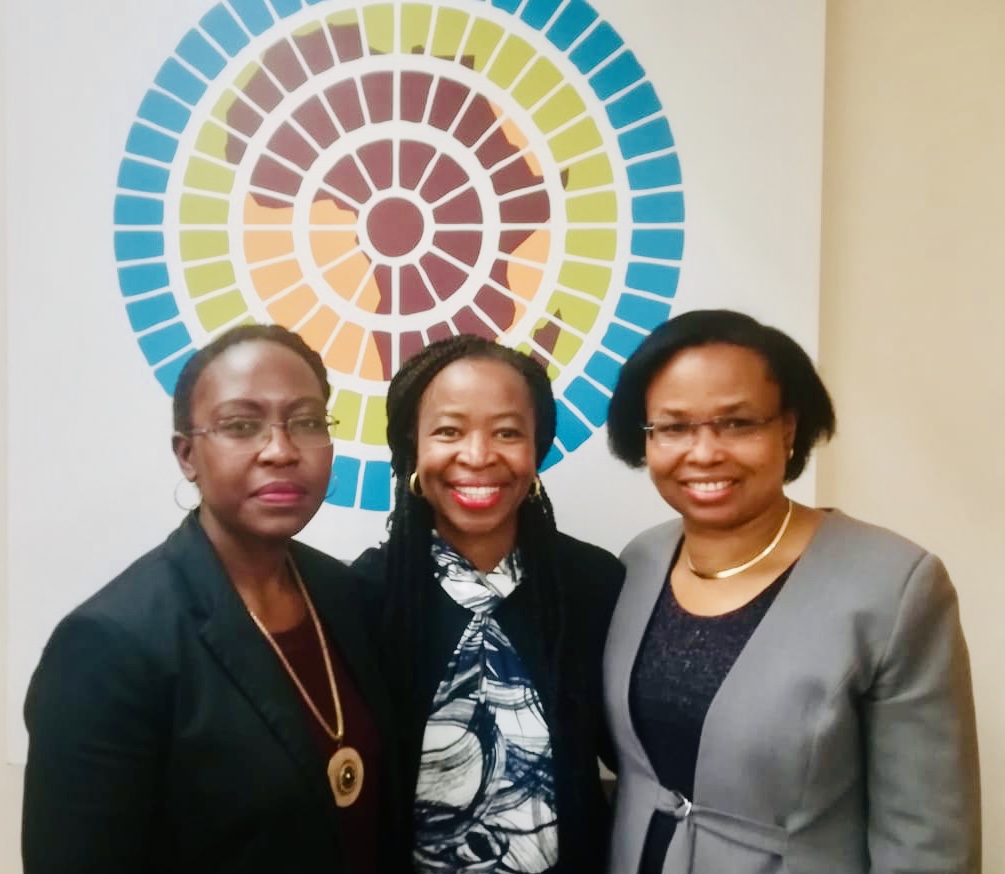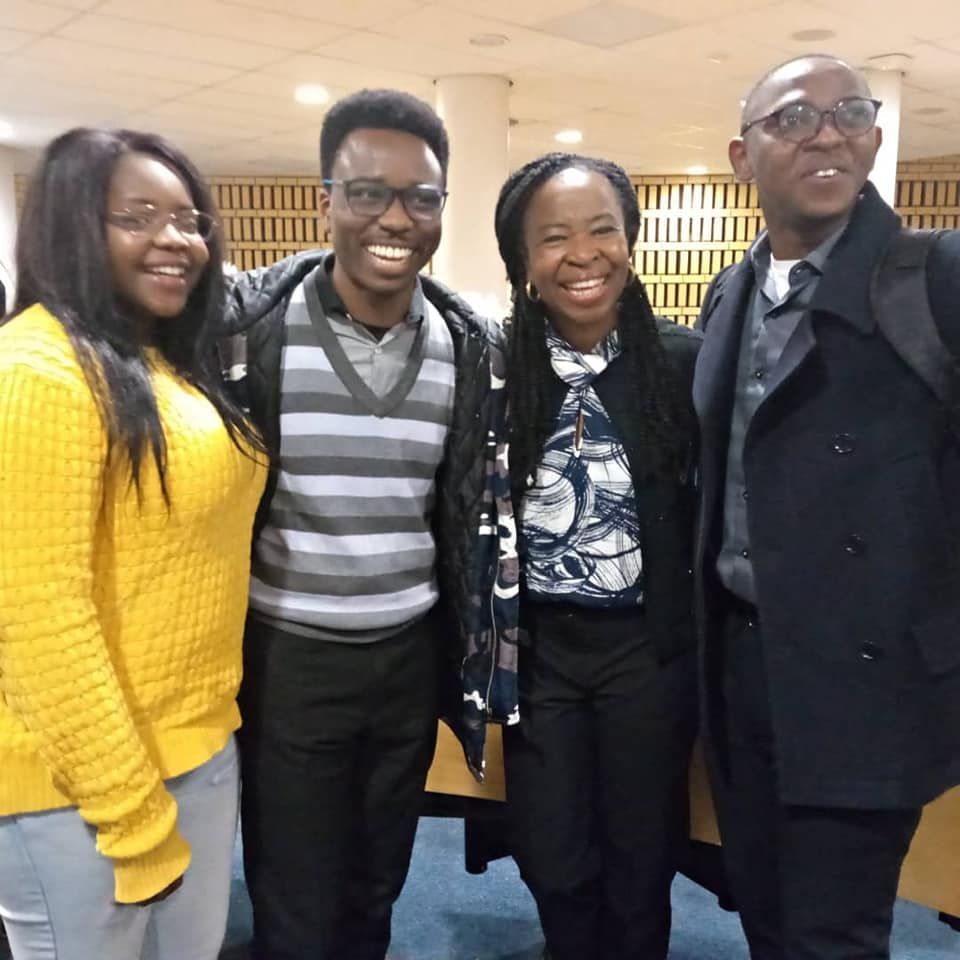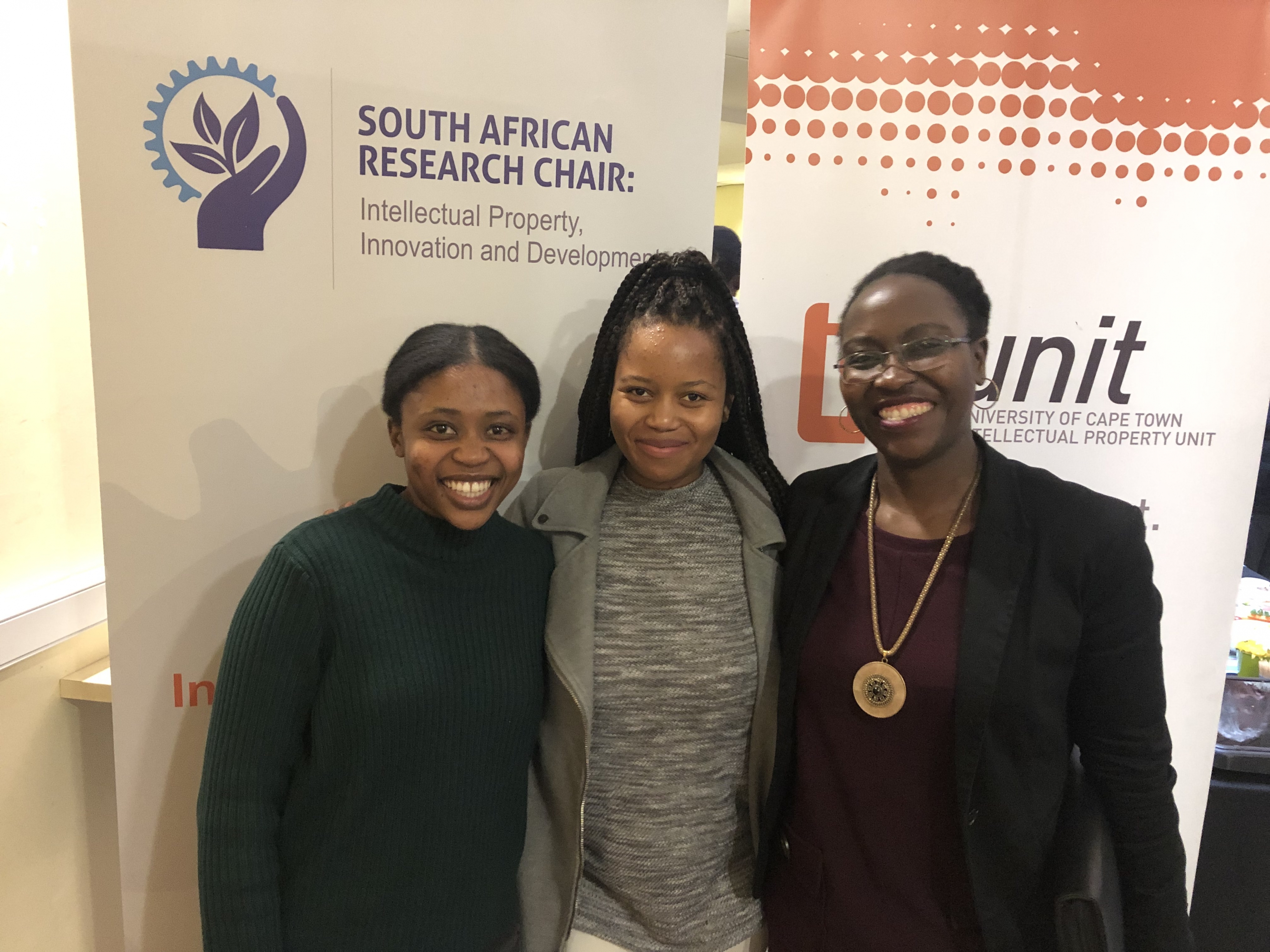Why decolonisation of IP matters - with Prof R Okediji


Professor Okediji started by cautioning us that although it is important to consider the past when decolonising, the ultimate goal should be looking at how best we can prepare for the future. Using the analogy of electricity lines, she explained IP as an important tool operating behind the scenes but because this tool is hidden - many do not see its significance.
In an effort to drive this point home, Professor Okediji, emphasized that copyright law regulates the information economy. Essentially, if our legal structure does not encourage a flexible copyright law - we risk excluding many South Africans from accumulating knowledge. Due to the incredibly structurally racialised history of access to technology and the information economy in South Africa, previously disadvantaged groups would continue to be excluded.
Against the backdrop of South Africa’s past, Professor Okediji postulated that the way forward is to advocate for copyright laws that are sensitive to our history. In order to be applicable to the current South African context, these copyright laws require locally relevant development. Consequently, according to Professor Okediji, decolonisation requires us to critically consider how to maximise value from the international IP framework, mainly through binding international treaties, for South Africa’s copyright law.
Afro-IP reported on Prof Okediji's talk in Johannesburg, held on 7 August. View the video of Prof Okediji's UCT talk.
The seminar was well-attended and many UCT LLB and LLM students attended, some of whom are pictured below.

|

|
Text by Somila Dondashe/ Images supplied by Grace Ndlovu and Somila Dondashe